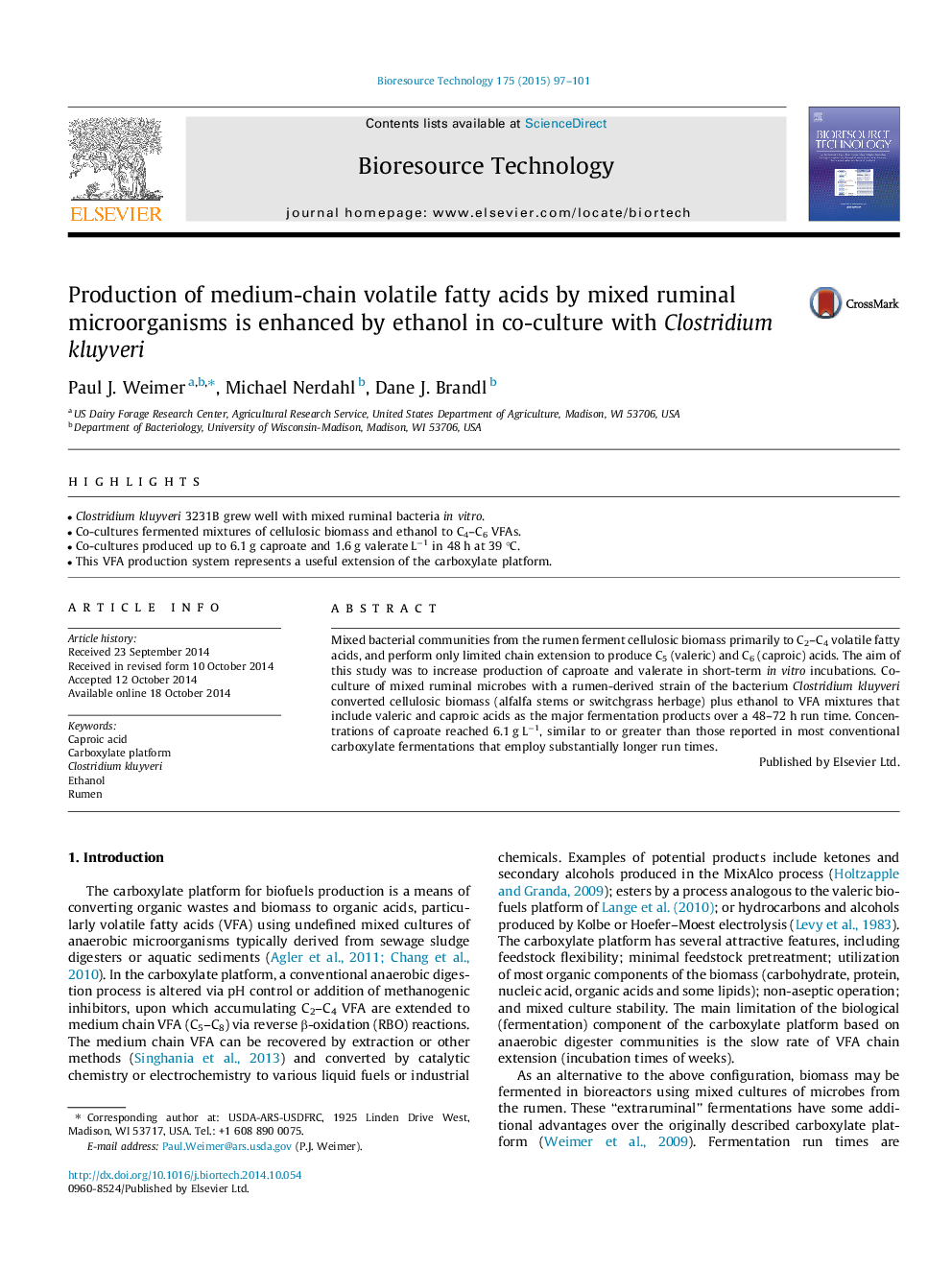| Article ID | Journal | Published Year | Pages | File Type |
|---|---|---|---|---|
| 680312 | Bioresource Technology | 2015 | 5 Pages |
•Clostridium kluyveri 3231B grew well with mixed ruminal bacteria in vitro.•Co-cultures fermented mixtures of cellulosic biomass and ethanol to C4–C6 VFAs.•Co-cultures produced up to 6.1 g caproate and 1.6 g valerate L−1 in 48 h at 39 °C.•This VFA production system represents a useful extension of the carboxylate platform.
Mixed bacterial communities from the rumen ferment cellulosic biomass primarily to C2–C4 volatile fatty acids, and perform only limited chain extension to produce C5 (valeric) and C6 (caproic) acids. The aim of this study was to increase production of caproate and valerate in short-term in vitro incubations. Co-culture of mixed ruminal microbes with a rumen-derived strain of the bacterium Clostridium kluyveri converted cellulosic biomass (alfalfa stems or switchgrass herbage) plus ethanol to VFA mixtures that include valeric and caproic acids as the major fermentation products over a 48–72 h run time. Concentrations of caproate reached 6.1 g L−1, similar to or greater than those reported in most conventional carboxylate fermentations that employ substantially longer run times.
